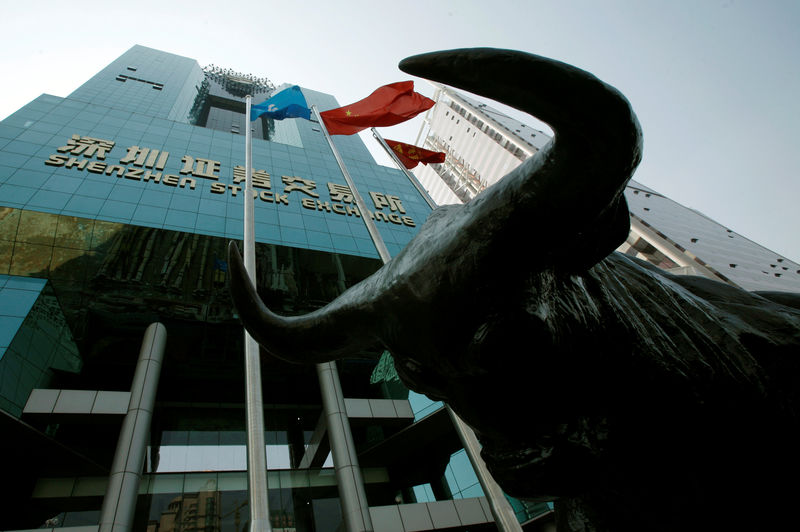
Chinese stocks lose foreign inflows amid rising investor caution – Morgan Stanley
Investing.com– Foreign investment in Chinese equities reversed course in November, marking the end of a brief two-month period of net inflows, highlighting ongoing caution among global investors, according to Morgan Stanley (NYSE:MS).
Overseas funds recorded total outflows of $7.5 billion during November. Passive funds, which had brought in $11.9 billion in October, shifted to $4.6 billion in outflows in November, while active funds accelerated their withdrawals, pulling out $2.9 billion, Morgan Stanley analysts wrote.
The brokerage notes a divergence in historical flow patterns. Cumulative inflows from passive foreign funds remain close to their peak levels since late 2022. Conversely, active funds have sunk to their lowest cumulative flow levels in the same period, underscoring a retreat from discretionary bets on Chinese equities.
Sector-level analysis revealed nuanced investment behavior, analysts said. Active managers increased allocations in consumer services and capital goods, sectors considered relatively stable or benefiting from policy support. However, they reduced exposure to consumer discretionary and materials, reflecting skepticism about near-term consumption recovery and industrial demand.
On the company level, AIA Group Ltd (HK:1299) and Kweichow Moutai Co Ltd (SS:600519) saw the largest increases in positions, while significant reductions were observed in holdings of Alibaba (NYSE:BABA) Group Holding Ltd (HK:9988), JD (NASDAQ:JD).com (HK:9618), and Industrial and Commercial Bank of China Ltd (SS:601398), according to Morgan Stanley.
On the domestic front, Chinese investors displayed resilience. Passive funds domiciled in China brought in $5 billion in November, though this represented a slowdown compared to October’s $12 billion, the research showed.
Meanwhile, bearish sentiment grew in offshore Chinese and Hong Kong equities, as short positions rose by $1.7 billion. Short interest was particularly concentrated in the consumer discretionary and services sectors, the brokerage said.
Morgan Stanley’s analysis reflects the complex dynamics facing Chinese equities. While domestic participation remains strong, global sentiment is tempered by macroeconomic uncertainties.

